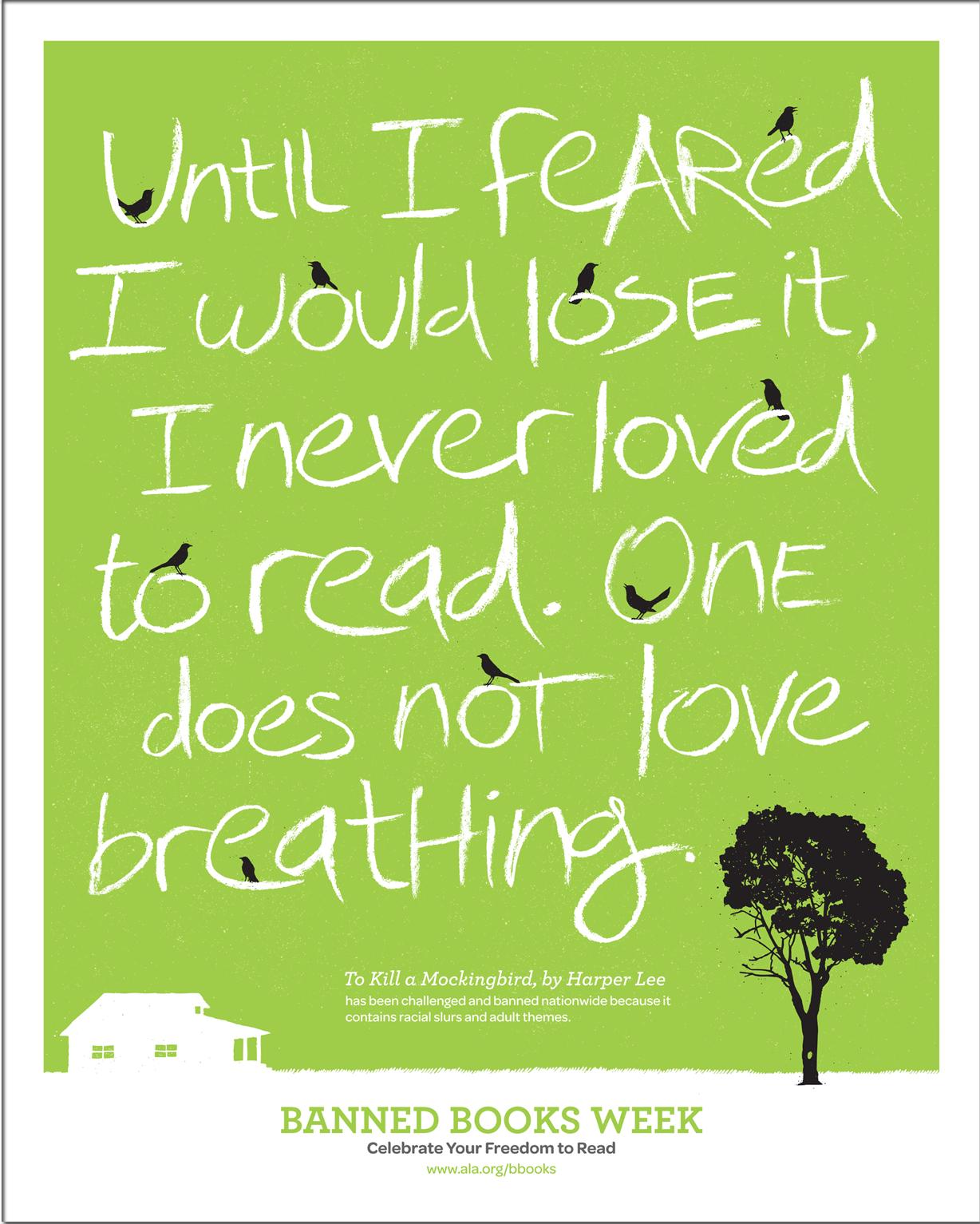
When the American Library Association's Banned Books Week came around again this year (September 26-October 3), I realized I'd missed an opportunity in my YA lit class. During one of my last years as a high school English teacher, I invited Eva Davis, then our community teen services librarian, to visit my ninth grade English classes during Banned Books Week. Students reacted with disbelief as Eva held up book after book that had come under recent attack somewhere in the U.S. Though I can't remember the particular titles Eva held up that year, I do recall students' indignation and disbelief as they learned how many of their current and childhood favorites had stirred up controversy. When Eva listed the most common reasons for book challenges (1. the material was considered to be "sexually explicit" 2. the material contained "offensive language" 3. the materials was "unsuited to any age group"), my 14- and 15-year-old students got even more fired up.
Thanks to the news that gets shared through the kidlitosphere, Banned Books Week took on renewed poignancy for me this year. Laurie Halse Anderson's posts this past week reminded me that book banning attempts in American public schools are alive and well, and that once a challenge is raised, the wait for resolution can sometimes stretch on for months.
Just this fall in my home state of Kentucky, a teacher at Montgomery High School in Mt. Sterling has come under fire for offering YA titles (including Anderson's Twisted, Chris Crutcher's Deadline, Jo Knowles' Lessons from a Dead Girl, and Sonya Sones' What My Mother Doesn't Know, and Neal Shusterman's Unwind) as literature circle selections in her sophomore English classes. While Laurie reported that six lit circle titles were pulled from the teacher's classroom on August 24th in response to a parent's complaint (with a seventh book added a week later), that official paperwork was only filed to challenge three of the titles (Twisted, Unwind, and Lessons from a Dead Girl), and that the challenge committee voted to keep all three titles, as of this week, none of the original seven books has been returned to the classroom. Apparently the school superintendent has overruled the challenge committee's vote.
What is inspiring about cases like these is how often authors and their allies do rally in support of teachers who face book challenges. This week Laurie used her blog to call on teachers, college professors, and students to send her testimonials about the classroom use of any of the three challenged titles. I was proud to speak as a new college professor who could highlight the testimony of a current student who read and blogged about Twisted during the first month of my YA lit class.
Of course the issue is never just the merits or liabilities of a single book. While challenges such as this one drag out, teachers and students are left in freefall, unable to proceed with literature circles, and unable to know how many hoops they will have to jump through before they can get back to reading and discussing the books originally selected for classroom use. Meanwhile other teachers may take a chilling message from the proceedings: be careful of the books you choose for classroom use, or you may be the next teacher under the censors' spotlight.
One of the most sobering aspects of the American Library Association's work is that reported challenges only represent about 20% of the actual number of challenges lodged each year. Even more sobering is the number of individuals who quietly choose not to introduce potentially controversial materials into their classrooms or after-school book clubs for fear of a potential challenge. These acts of self-censorship, and the underlying fear they represent, should be seen as the most damaging consequence of censorship.
Of course, it's important to remember that fear motivates the would-be censors as well: fear of a book's power to alarm, disturb, excite, incite, or in some other way harm young people. I and so many others argue that far greater harm occurs through the stifling of ideas and the erosion of trust among members of the communities where book challenges have been fought.
You can do something about censorship. Be a voice for our collective right to read. And next year, be sure to celebrate Banned Books Week.
No comments:
Post a Comment